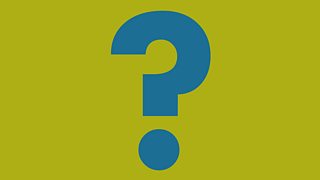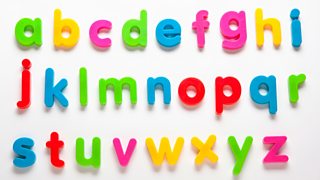Seven of your biggest grammar bugbears sorted
We all have our moments. Should it be while or whilst? Sometimes sentences get a bit tangled up and, you know, a few errors slip in. So, what can be done to help us in times of grammatical need? have been looking into the top gripes we have every day about language, and how we can correct our mistakes.
1. The use and abuse of padding words: basically, you know, like and literally
This is literally the most annoying thing that people slip up on in speech.
But is it really? Literally originally meant faithful to literature.
Padding words seem to be everywhere nowadays, slipping into our speech on a daily basis to buy us time to think about what we're going to say next. We're just so used to using them every day that they pop into our brains without us even thinking about it.
Katherine Fry and Rowena Kirton call these words lazy vocabulary. Keep that in mind next time you're talking.

Katherine Fry, Rowena Kirton, Michael Rosen and Dr Laura Wright discuss padding words.
2. Why do so many people start their sentences with ‘so’?
So, have you noticed that a lot of people start their sentences with so nowadays?
Starting a sentence with so, is a lot like starting a sentence with well.
It is mainly used today as an indicator that the person speaking has thought about replying, considered their answer and that an answer is about to arrive.

Katherine Fry and Rowena Kirton, authors of the book 'Grammar for Grown-Ups', talk about 'so'.
3. You're probably pronouncing 'the' incorrectly
It's all about whether the word after 'the' starts with a vowel or a consonant.
Katherine Fry clears the confusion up for us in this clip.

How to pronounce 'the' correctly.
4. Whilst versus while: is only one of these correct?
There appears to be total confusion over the words whilst and while. Rowena Kirton thinks that people use 'whilst' nowadays to add gravitas to what they're saying.
It's a rather archaic word and we probably don't really need it anymore.
One important thing to bear in mind though - if you're going to use whilst, you also need to be using amongst. Them's the rules!

Rowena Kirton on whether we need the archaic word whilst.
5. Can something or someone really be 'one of the only...'?
You'll hear it frequently when watching sports. Commentators will herald something or somebody as 'one of the only...'.
But is this ok? Doesn't only mean one? Therefore can you really have 'one of the only'? The Merriam-Webster Dictionary defines 'one of the only' as 'one of the very few'.
But 'one of the only' is similar in many ways to 'very unique' - either something is unique or it isn't; you can't have degrees of it.
It's probably best to steer clear of this one and use 'one of a few' or 'the only one' instead. You'll get into fewer arguments that way.

Probably best to steer clear of 'one of the only'.
6. When should you be using who or whom?
Remember this! Who pushed whom.
Who is the subject of the sentence.
Whom is the object of the sentence.
Who pushed whom. That is the order that it should always be in.

Sorting out the use of who and whom.
7. These are the most common grammar mistakes
Katherine Fry and Rowena Kirton, authors of the book 'Grammar for Grown-Ups', talk with Michael Rosen and Dr Laura Wright about the top grammar gripes.
To hear more, listen to the .

The most common grammar mistakes.
-
![]()
Michael Rosen and Dr Laura Wright answer listeners' questions.
-
![]()
Are you grammatically gormless or a punctuation perfectionist? Find out now.
-
![]()
Why do Americans say eggplant and highway, rather than aubergine and motorway?
-
![]()
Which nation favours the poo emoji? Here are some fascinating emoji facts.




